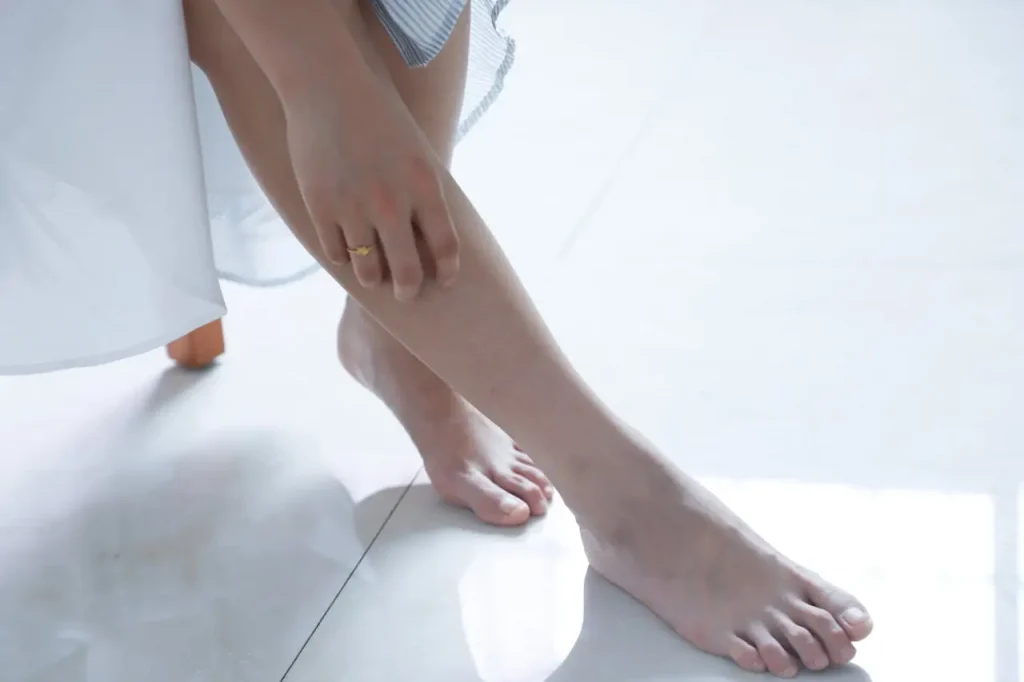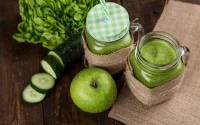Dry Skin Solutions: Dermatologist-Approved Tips for Hydration

Are you tired of dealing with dry, flaky skin? Look no further. In this article, we will share dermatologist-approved tips and solutions for hydrating your skin and saying goodbye to dryness for good. Whether you have naturally dry skin or are experiencing temporary dryness due to weather, age, or certain medications, these expert tips will help you achieve a healthy and hydrated complexion.
Understanding Dry Skin: Causes and Symptoms
Dry skin is a common condition that many people struggle with. It occurs when your skin lacks the necessary moisture and oil to keep it hydrated and supple. Various factors can contribute to dry skin, including genetics, weather conditions, aging, and certain medications. Understanding the causes and symptoms of dry skin is crucial to effectively address the issue.
One of the main causes of dry skin is a lack of sebum production. Sebum is the natural oil that your skin produces to keep it moisturized and protected. When your skin doesn’t produce enough sebum, it can become dry, tight, and prone to flaking. Other factors such as harsh weather conditions, especially during winter, can strip your skin of its natural oils, leading to dryness.
The Importance of Hydration for Skin Health
Hydration is key when it comes to maintaining healthy and radiant skin. Your skin is the largest organ in your body and plays a vital role in protecting you from external elements. When your skin is properly hydrated, it functions optimally, maintaining its elasticity and barrier function. However, when your skin lacks moisture, it can become dull, rough, and more prone to irritation and premature aging.
Drinking enough water is essential for hydrating your skin from within. Water helps to flush out toxins and deliver essential nutrients to your skin cells, promoting a healthy complexion. It is recommended to drink at least eight glasses of water a day to keep your skin hydrated and glowing. Additionally, incorporating hydrating foods into your diet, such as watermelon, cucumber, and leafy greens, can also contribute to your skin’s hydration levels.
Dermatologist-Approved Tips for Hydrating Dry Skin
When it comes to hydrating dry skin, a multi-faceted approach is often necessary. Our dermatologists recommend a combination of proper skin care, lifestyle changes, and potential professional treatments to effectively combat dryness. Here are some dermatologist-approved tips for hydrating dry skin:
1. Choosing the Right Moisturizer for Dry Skin
Using a moisturizer specifically formulated for dry skin is essential in restoring and maintaining its hydration levels. Look for moisturizers that contain ingredients like hyaluronic acid, glycerin, shea butter, or ceramides. These ingredients help to attract and lock in moisture, providing long-lasting hydration. Avoid moisturizers with added fragrances or alcohol, as these can further irritate and dry out your skin.
When applying moisturizer, it’s important to do so on damp skin. This helps to seal in the moisture and maximize its hydrating benefits. Apply your moisturizer in gentle, upward motions, focusing on areas that tend to be drier, such as your cheeks and forehead. Don’t forget to extend the application down your neck and onto your décolletage, as these areas are often neglected but still prone to dryness.
2. Incorporating a Skincare Routine for Dry Skin
A consistent skincare routine is crucial in maintaining hydrated skin. When it comes to dry skin, gentle cleansing is key. Opt for a mild, hydrating cleanser that won’t strip your skin of its natural oils. Avoid hot water when cleansing, as it can further dehydrate your skin. Instead, use lukewarm water and gently pat your skin dry with a soft towel.
After cleansing, follow up with a toner to help balance your skin’s pH levels. Look for toners that are alcohol-free and contain hydrating ingredients like rose water or witch hazel. Next, apply a serum that is packed with moisturizing ingredients. Serums are lightweight and penetrate deeper into the skin, delivering potent hydration. Look for serums that contain hyaluronic acid or vitamin E for maximum benefits.
Finally, seal in all the hydration with a nourishing moisturizer. Apply it liberally all over your face and neck, and don’t forget to give special attention to areas that tend to be drier. If needed, you can also incorporate a facial oil into your routine. Facial oils help to lock in moisture and provide an added layer of protection for your skin.
3. Lifestyle Changes to Support Hydrated Skin
In addition to a proper skincare routine, certain lifestyle changes can greatly contribute to maintaining hydrated skin. First and foremost, make sure you are drinking enough water throughout the day. As mentioned earlier, staying hydrated from within is crucial for healthy skin. Additionally, consider investing in a humidifier, especially during drier months or if you live in a dry climate. A humidifier adds moisture to the air, which can help prevent your skin from drying out.
Another lifestyle factor to consider is your diet. Eating a balanced diet that includes foods rich in essential fatty acids, vitamins, and antioxidants can greatly benefit your skin’s hydration levels. Foods like avocados, salmon, nuts, and green leafy vegetables are great for promoting healthy and hydrated skin. Limiting your intake of processed and sugary foods can also help in maintaining optimal skin health.
Lastly, stress can have a significant impact on your skin’s condition. When you’re stressed, your body produces more cortisol, a hormone that can dehydrate your skin. Finding healthy ways to manage stress, such as practicing yoga, meditation, or engaging in hobbies, can help improve your skin’s hydration levels. Getting enough sleep is also crucial, as your skin repairs and rejuvenates itself during sleep.
Common Mistakes to Avoid When Dealing with Dry Skin
When it comes to managing dry skin, there are some common mistakes that people often make. These mistakes can worsen dryness and prevent your skin from getting the hydration it needs. Here are some common mistakes to avoid:
- Over-exfoliating: Exfoliating is important for removing dead skin cells and promoting cell turnover. However, over-exfoliating can strip your skin of its natural oils and lead to dryness. Limit exfoliation to once or twice a week, and use gentle exfoliators that won’t irritate.
- Taking long, hot showers: While a hot shower may feel relaxing, it can dehydrate your skin. Hot water strips your skin of its natural oils, leading to dryness. Opt for lukewarm showers and keep them short to prevent your skin from drying out.
- Using harsh skincare products: Harsh cleansers, toners, and skincare products that contain alcohol or fragrances can further irritate and dry out your skin. Opt for gentle, hydrating products that are specifically formulated for dry skin.
- Ignoring sunscreen: Sunscreen is not just for sunny days. UV rays can penetrate clouds and cause damage to your skin, leading to dryness and premature aging. Make sure to protect your skin by applying sunscreen daily, even on cloudy days.
Natural Remedies for Dry Skin
If you prefer natural remedies, several options can help hydrate your skin and alleviate dryness. Here are some natural remedies for dry skin:
- Coconut oil: Coconut oil is known for its moisturizing properties. Apply a small amount of coconut oil to your skin after showering to lock in moisture.
- Aloe vera gel: Aloe vera gel has soothing and hydrating properties. Apply pure aloe vera gel to your skin and leave it on for 10-15 minutes before rinsing off.
- Honey: Honey is a natural humectant, meaning it attracts and retains moisture. Apply a thin layer of honey to your skin and leave it on for 15-20 minutes before rinsing off.
- Oatmeal: Oatmeal has anti-inflammatory properties and can help soothe and hydrate dry skin. Mix oatmeal with warm water to create a paste, then apply it to your skin and leave it on for 15-20 minutes before rinsing off.
Professional Treatments for Severe Dry Skin
If your dry skin is severe and persistent, it may be beneficial to seek professional treatments. Dermatologists have access to advanced treatments that can help improve your skin’s hydration levels and overall condition. Here are some professional treatments for severe dry skin:
- Hyaluronic acid injections: Hyaluronic acid injections can provide deep hydration to your skin, helping to plump and smooth out dry and wrinkles.
- Microdermabrasion: Microdermabrasion is a non-invasive treatment that exfoliates the outer layer of your skin, revealing smoother and more hydrated skin underneath.
- Chemical peels: Chemical peels can help remove dead skin cells and stimulate collagen production, resulting in a more hydrated and youthful complexion.
- Laser treatments: Laser treatments can help improve the texture and tone of your skin, while also promoting collagen production and hydration.
Consult with a dermatologist to determine which professional treatment is best suited for your specific skin concerns and needs.
Conclusion: Achieving and Maintaining Hydrated Skin
Dry skin can be a frustrating condition to deal with, but with the right tips and solutions, you can achieve and maintain hydrated skin. By understanding the causes and symptoms of dry skin, incorporating a proper skincare routine, making lifestyle changes, and seeking professional treatments if needed, you can say goodbye to dryness and hello to a moisturized, radiant complexion. Remember to be consistent with your skincare routine, hydrate from within, and protect your skin from external factors. With these dermatologist-approved tips, you can regain confidence in your skin and flaunt a youthful, healthy glow.
Note: The above blog article is a representation of the given title, intro, and outline. The final word count may vary slightly depending on the content written.


